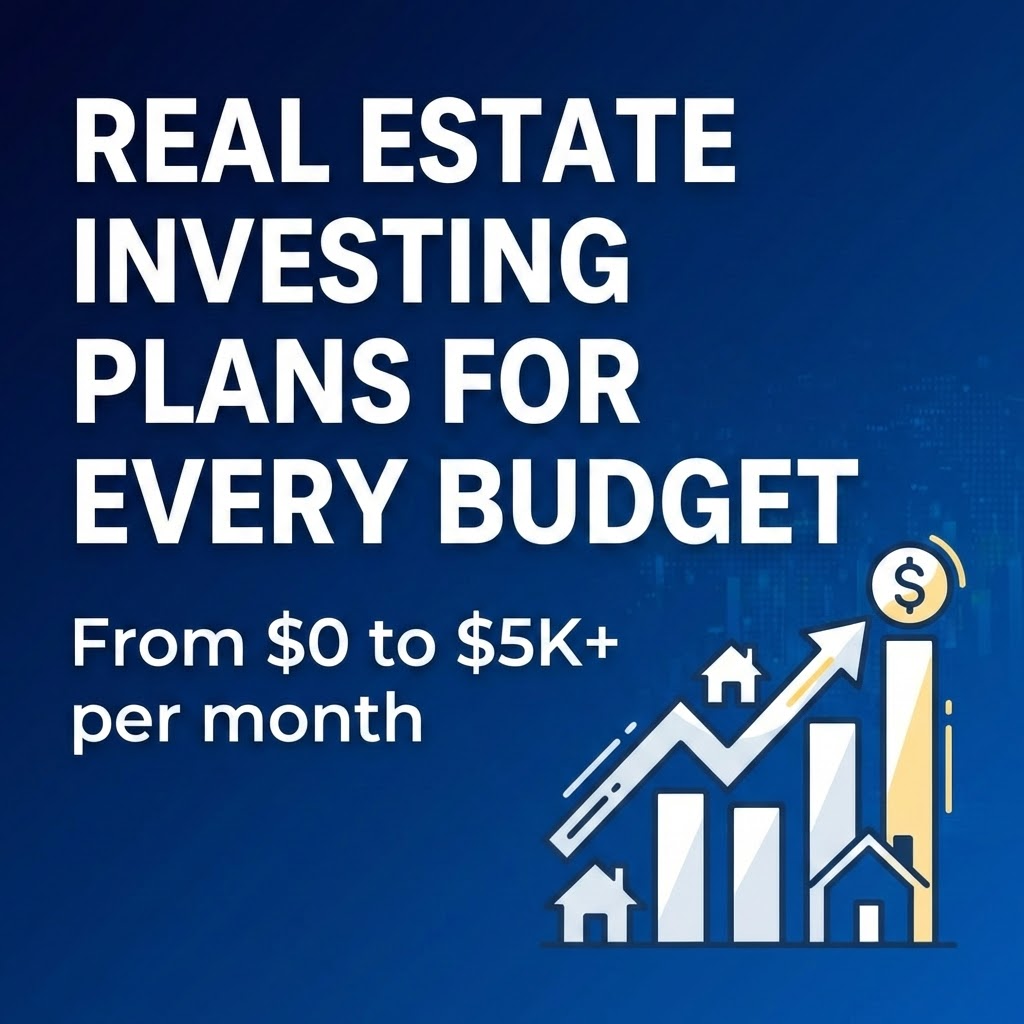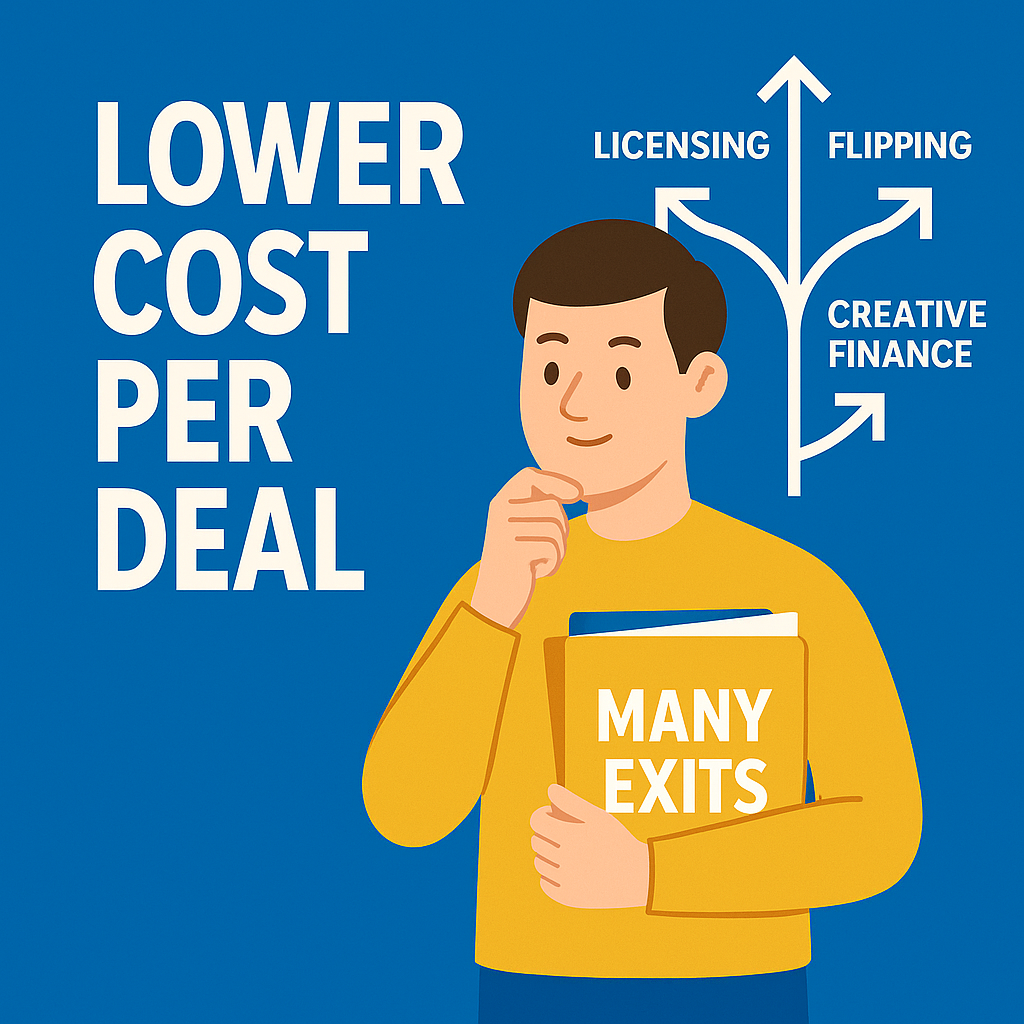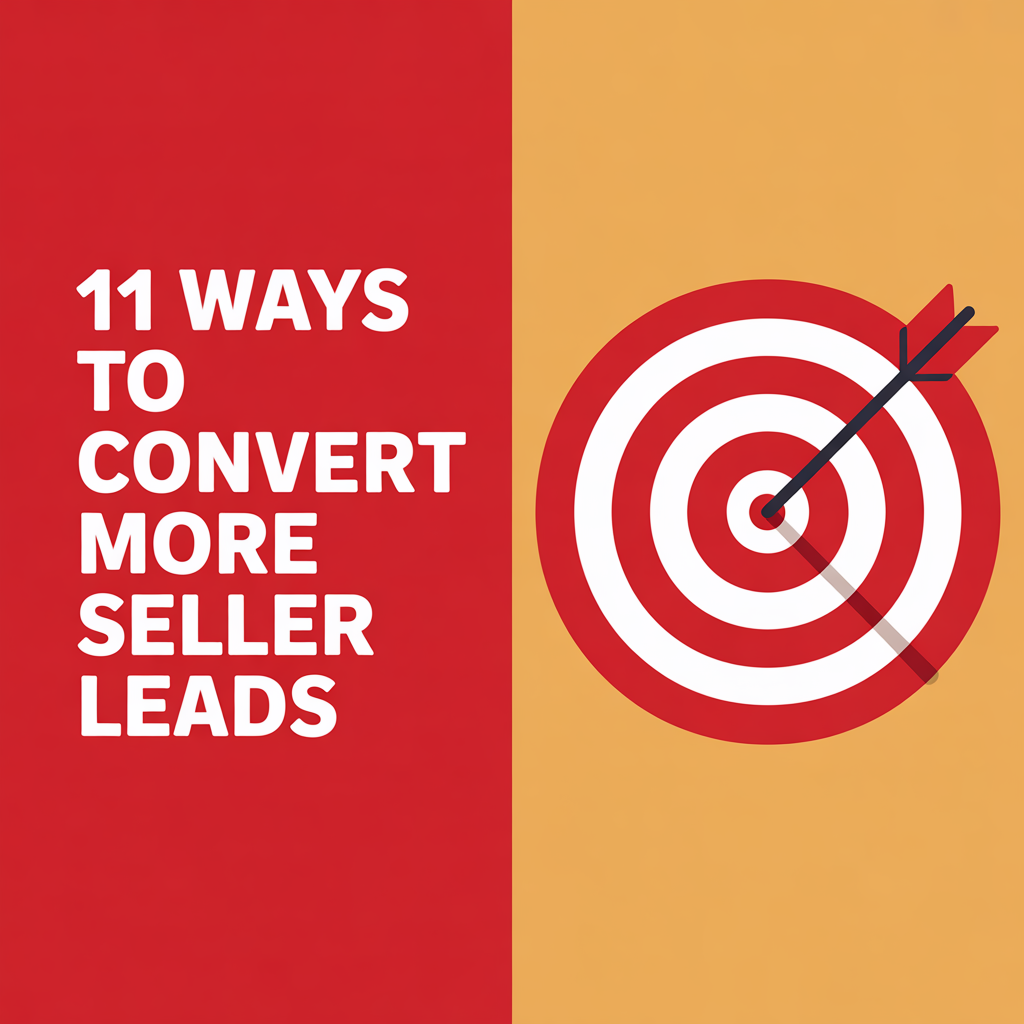In the world of real estate investing, organization and efficiency are the backbone of success. Whether you're managing a handful of deals or scaling up to dozens of transactions a year, keeping track of leads, follow-ups, and finances can be overwhelming. This is where a Customer Relationship Management (CRM) system comes in.
If you're serious about generating motivated seller leads and closing more deals, implementing the right CRM can be a game-changer. Sharad Mehta, a seasoned investor and founder of REsimpli, shares how a well-integrated CRM can streamline your workflow, boost efficiency, and ultimately increase profitability.
Check out our other podcasts here.
Why a CRM is Essential for Real Estate Investors
Many real estate investors start by managing deals using Excel spreadsheets, handwritten notes, or simple task reminders. While this may work in the short term, it quickly becomes unmanageable as the business grows. A CRM helps automate processes, track leads, and ensure no opportunity is missed.
Key Benefits of a CRM for Real Estate Investors
- Improved Organization – Keep all your leads, notes, and communication history in one place.
- Automated Follow-Ups – Set up text, email, and call reminders to stay in touch with potential sellers.
- Centralized Communication – Handle calls, texts, and emails within one platform.
- Data-Driven Decisions – Track key performance indicators (KPIs) to determine which marketing channels yield the best results.
- Scalability – Grow your business without adding unnecessary complexity.
The Power of Automation in Real Estate Investing
One of the biggest advantages of using a CRM is automation. A common challenge for investors is keeping up with leads who may not be ready to sell immediately. Statistics show that only 5-10% of leads are ready to sell right away, meaning that 90-95% require follow-ups. Without an automated system in place, these leads can easily slip through the cracks.
With a CRM, you can:
- Automatically schedule follow-ups based on seller responses.
- Send personalized text messages, emails, and ringless voicemails.
- Keep track of seller interactions so you can pick up conversations where you left off.
- Record calls for future reference and better lead nurturing.
Real-Life Example: A lead entered Sharad’s CRM in 2019. Thanks to automated drip campaigns, the system nurtured the lead until they were finally ready to sell—four years later! Without automation, this opportunity would have been lost.
Tracking KPIs: The Key to Growth
One of the biggest differentiators of a powerful CRM is its ability to track Key Performance Indicators (KPIs). As Sharad Mehta explains, understanding your data is crucial for making informed decisions. Without a clear view of your marketing spend, conversion rates, and revenue per lead, it's nearly impossible to optimize your real estate business.
A CRM allows investors to:
- Track marketing campaigns down to the penny.
- Understand which lead sources are the most profitable.
- Identify weak points in the sales process and make data-driven improvements.
- Attribute deals back to their original marketing campaigns, even if months or years have passed.
For example, if you’re running direct mail campaigns, you can see exactly how much you spent on different lists (absentee owners, probate, tax liens) and compare that to the revenue generated from each source.
Managing Your Entire Business in One Platform
Most real estate investors use multiple software tools to manage their businesses – QuickBooks for accounting, a separate CRM for leads, spreadsheets for KPI tracking, and Zapier for integrations. This fragmented system leads to inefficiencies and unnecessary costs.
A modern CRM like REsimpli consolidates everything into one platform. Features include:
- Lead Management – Capture, organize, and track leads.
- Automated Follow-Ups – Drip campaigns that keep you top-of-mind with sellers.
- Built-in Website & Lead Capture – No need for third-party integrations.
- Direct Mail & Drip Campaigns – Send postcards and emails automatically.
- Full Accounting & Bookkeeping – No need for QuickBooks.
- Driving for Dollars Integration – Build and track marketing lists on the go.
Driving for Dollars: A Game-Changer
For investors who scout properties in person, REsimpli's Driving for Dollars feature helps log properties, check for duplicates in the system, and initiate contact seamlessly. This prevents wasted marketing spend on properties that are already in your CRM.
By keeping all aspects of your business within a single software solution, you reduce the risk of losing important data and streamline your workflow.
The Secret to Closing More Deals: Consistent Follow-Ups
Many investors mistakenly believe that if a seller isn’t ready to sell immediately, they aren’t a good lead. However, most deals come from consistent follow-ups.
Sharad shared an example of a lead that was nurtured for over four years before finally converting into a deal. This wouldn’t have been possible without an automated follow-up system in place.
A CRM helps keep your business top-of-mind with sellers by:
- Sending automated texts and emails.
- Scheduling phone call reminders.
- Keeping detailed notes about past conversations.
- Ensuring no lead is forgotten.
Choosing the Right CRM for Your Business
When selecting a CRM, it’s important to consider:
- Ease of Use – How quickly can you implement and start using it?
- Automation Capabilities – Does it support text, email, and call automation?
- Customization – Can it be tailored to fit your unique workflow?
- Scalability – Will it grow with your business?
- Cost-Effectiveness – Does it replace multiple tools, saving you money in the long run?
REsimpli Pricing Plans
REsimpli offers multiple pricing tiers to fit different investor needs:
- $99/month – Ideal for beginners, includes lead management, automation, and website integration.
- $749/month – Designed for larger teams handling multiple markets, replacing Salesforce for many investors.
REsimpli, created by an active real estate investor, is designed specifically for real estate professionals looking to scale efficiently. With its all-in-one approach, it eliminates the need for multiple software solutions and ensures that you’re always operating at peak performance.
Final Thoughts
If you’re a real estate investor looking to build a scalable business and generate motivated seller leads, implementing the right CRM is essential. It helps you stay organized, automate follow-ups, track key performance metrics, and ultimately close more deals.
Key Takeaways from the Interview with Paul Moore
1. The Current Economy is Unstable
- You can’t print excessive money, have skyrocketing real estate prices, and low inventory without something eventually breaking.
- There is a potential downturn coming, and investors should be cautious.
2. Paul's Background & Transition into Real Estate
- Started in the staffing industry in the 90s, sold his company, and made money.
- Initially thought he was an investor but was actually a speculator—he took big risks without ensuring his principal was safe.
- Lost and made money over time, realizing the importance of calculated, diversified investing.
- Flipped 60-70 single-family homes and 30+ waterfront lots before transitioning to commercial real estate.
- Now manages six different investment funds focused on self-storage, mobile home parks, and RV parks.
3. The Difference Between Speculating & Investing
- Speculating = Principal is not safe, but there is a chance for a return.
- Investing = Principal is relatively safe, with a reasonable expectation of returns.
- Many early investors mistake speculating for investing, leading to financial losses.
4. What is a Real Estate Investment Fund?
- Instead of investing in one property and risking total loss, a fund pools multiple properties to diversify risk.
- If one property underperforms, the others can balance out losses.
- His funds invest in self-storage, mobile home parks, and RV parks.
5. Investing in RV Parks: A Growing Trend
- COVID-19 drastically increased demand for RV camping and parks.
- 2019 was a record year for camping, but in 2020, first-time campers increased fivefold.
- 11 million RVs exist in the U.S., but 9 million more households want to buy one.
- The rise of RV-sharing platforms (like Airbnb for RVs) means more people are renting RVs, increasing demand for RV parks.
6. The Four Types of RV Parks
- Overnight Parks – Short-term stops along highways.
- Extended Stay Parks – People live there seasonally or long-term (e.g., near lakes, rural areas).
- Workforce Housing Parks – RV parks for workers in industries like oil drilling, construction, etc.
- Destination Parks – Fully amenitized resorts with water parks, putt-putt golf, movie theaters, and more.
- These are Paul’s primary investment focus due to high demand and difficulty for competitors to enter the market.
7. The Work-From-Home Shift is Boosting RV Park Demand
- More people are embracing remote work, making RV travel a long-term trend, not just a pandemic trend.
- Some RV owners are converting spaces into mobile offices to work from campgrounds.
- As remote work expands, so does the demand for quality RV parks.
8. Investing in Smaller RV Parks
- Small investors can succeed with Extended Stay Parks—long-term rentals with low turnover.
- These parks require less active management than high-traffic weekend destinations.
- They generate consistent revenue by requiring annual upfront payments.
9. Paying Off $2.5 Million in Debt During the 2008 Crash
- After selling his business, he had $1.5M in cash but ended up $2.5M in debt by 2007.
- Real estate market crashed, leaving him financially exposed.
- Inspired by George Mueller’s philosophy of giving, he donated money even when in debt.
- Shortly after, he met someone who gave him an idea to sell off waterfront properties.
- Within 13 months, he became completely debt-free.
10. Why Many Real Estate Investors Are in Trouble Right Now
- Many investors took on floating-rate debt at 3% that is now rising to 6%+, doubling their mortgage payments.
- Rents aren’t increasing fast enough to cover these higher expenses.
- Some banks are now requiring investors to put aside $89,000/month to prepare for future loan resets.
- Many over-leveraged investors will be forced to sell, creating buying opportunities for those with cash.
11. Warren Buffett’s Investing Philosophy Applied to Real Estate
- “Be fearful when others are greedy, and be greedy when others are fearful.”
- The best buying opportunities will come as over-leveraged investors struggle.
- Buffett never bases decisions on the current economy—he looks for businesses (or real estate deals) with strong fundamentals.
- Long-term thinking wins over emotional, short-term reactions.
12. The Importance of Focus & Avoiding “Shiny Object Syndrome”
- Many investors chase too many opportunities instead of staying focused.
- Paul hosted the podcast How to Lose Money and found two conflicting lessons:
- Persevere & never give up.
- Quit early if you're on the wrong path.
- The challenge is knowing when to pivot vs. when to push through—this requires wisdom, experience, and advice from trusted mentors.
13. Paul’s Special Reports on RV Parks, Mobile Home Parks, & Self-Storage
- Offers detailed reports for investors on these asset classes.
- Covers history, trends, value-add strategies, and financial opportunities.
- Available at WellingsCapital.com/resources.
Ready to Scale Your Real Estate Business?
Take your real estate investing to the next level by integrating a CRM that simplifies your operations and maximizes your deal flow. Whether you're a beginner or an experienced investor, the right system will help you grow efficiently and turn more leads into closed deals.






